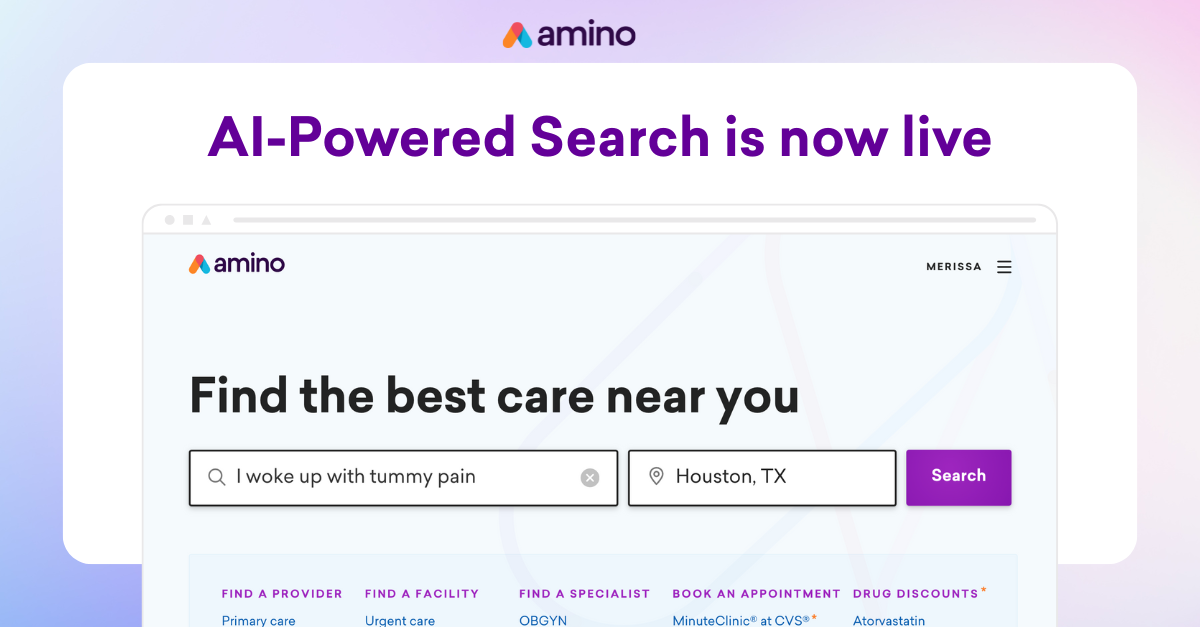Amino Health Launches AI-Powered Search to Help More People Find the Right Care, Faster
New technology expands search accessibility while preserving clinical quality and accuracy
[Los Angeles, April 8, 2025] — Amino Health today announced the launch of its AI-Powered Search, a new capability designed to help people more easily find the right care by translating everyday language into clinically appropriate search results. Built on a foundation of responsible AI and rigorous clinical standards, this launch represents a significant advancement in Amino Health’s mission to simplify access to high-quality, affordable healthcare.
The new AI-powered experience enables users to describe their health concerns in their own words - such as “tummy pain,” “knee keeps popping,” or “worried about memory” - and receive accurate, clinically-aligned care recommendations. The feature understands user intent and translates common expressions into clinical terms, providing personalized guidance.
“Healthcare doesn’t start in the doctor’s office, it starts with a question,” said John Asalone, CEO of Amino Health. “We believe everyone should feel supported at that moment. Our AI-Powered Search bridges the gap between how people talk and how healthcare systems operate.”
Smarter Search, Same Trusted Guidance
Unlike generic search engines or AI chatbots, Amino’s search experience is grounded in its proprietary clinical data framework and best-practice review processes. By leveraging natural language processing (NLP), the platform translates common expressions into clinical terms, while maintaining alignment with provider specialty, quality standards, and benefit design.
Key benefits of the AI-Powered Search include:
- Expanded Topic Coverage: AI identifies patterns in search behavior to surface related or underlying concerns users may be struggling to articulate, improving discovery and navigation.
- Precision Meets Personalization: Our AI connects user intent with clinical logic, delivering personalized care matches.
- Clinical Integrity by Design: Every AI-generated mapping is reviewed and validated by Amino Health’s clinical team to ensure it meets the same standards as manually curated content.
“Our AI doesn’t replace clinical expertise, it enhances it,” said Merissa Hawkins, VP of Clinical Product Strategy & Operations. “We’ve built our system to learn from how people ask for help, without compromising the quality or safety of the care they’re guided to.”
Delivering on the Promise of Personalized Access
Amino Health’s AI-Powered Search is now available to all clients and partners, fully integrated into our care navigation platform. Early performance insights show a 99% match rate and industry-leading user engagement with the new search experience. This launch represents the latest step in our commitment to closing the gap between a person’s intent and their access to care. By embedding AI thoughtfully and responsibly across our platform, Amino Health continues to deliver more personalized, intelligent, and equitable care guidance at scale.
Contact
Merissa Hawkins
VP, Clinical Product Strategy
mhawkins@amino.com
Connect with our Partnership Team
Want to learn how we can help your members transform their healthcare experience in 2025?

